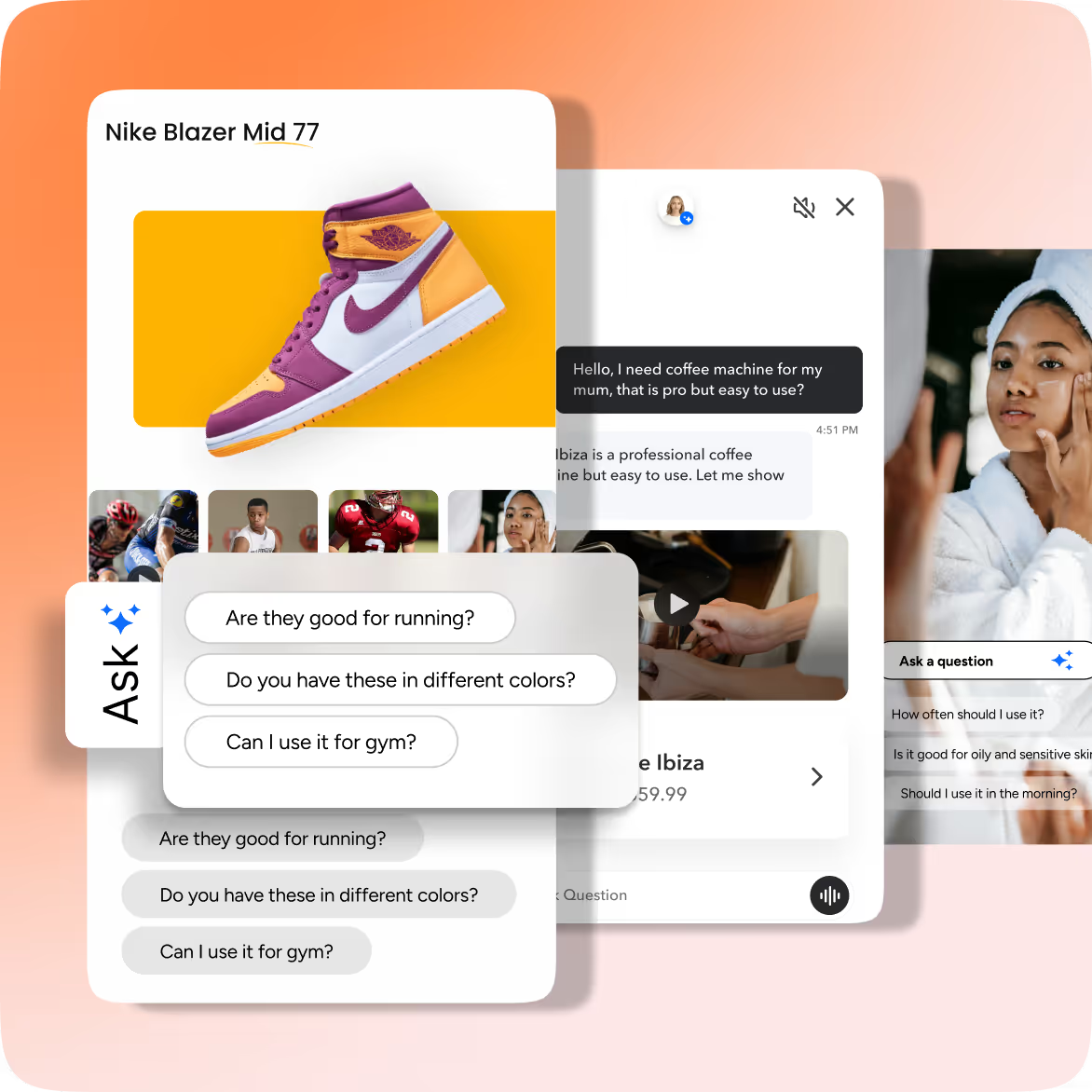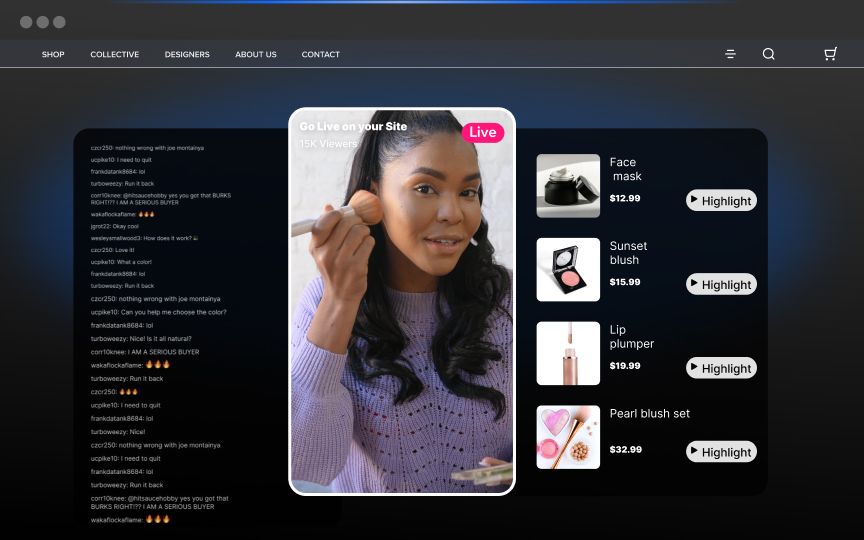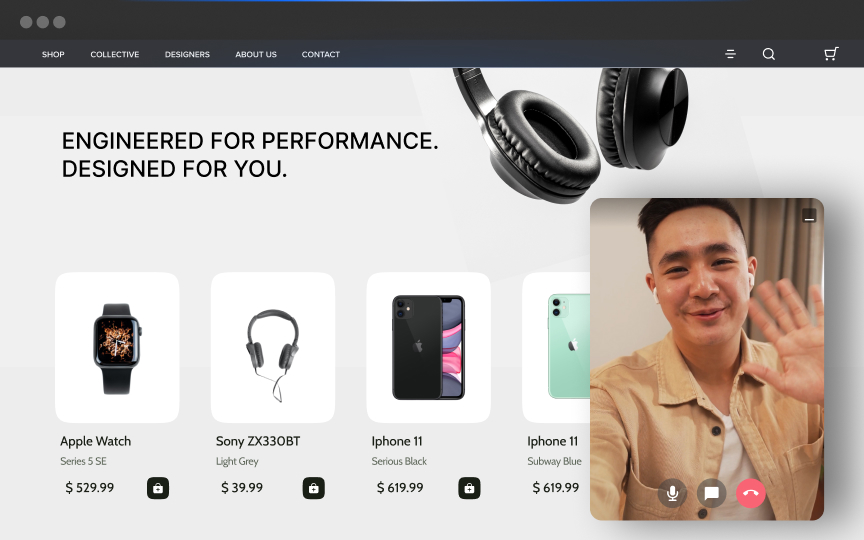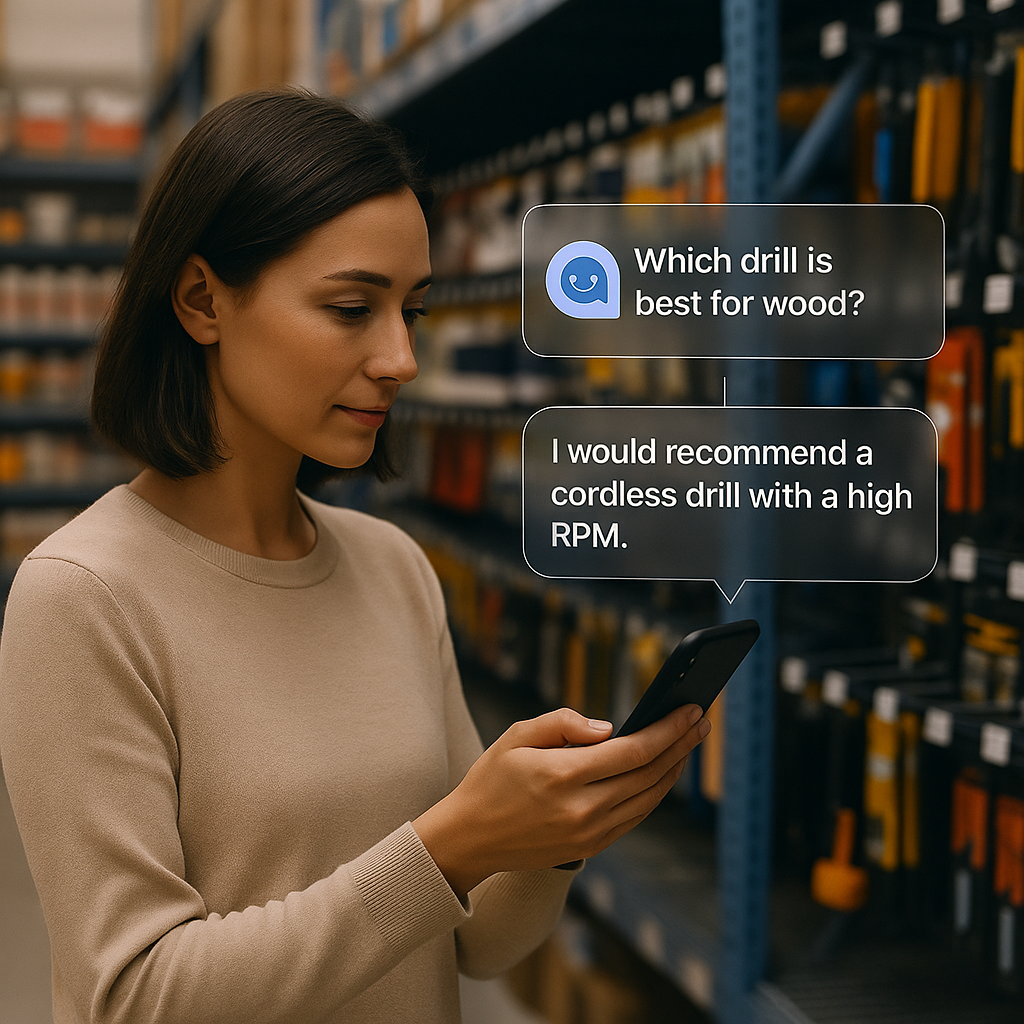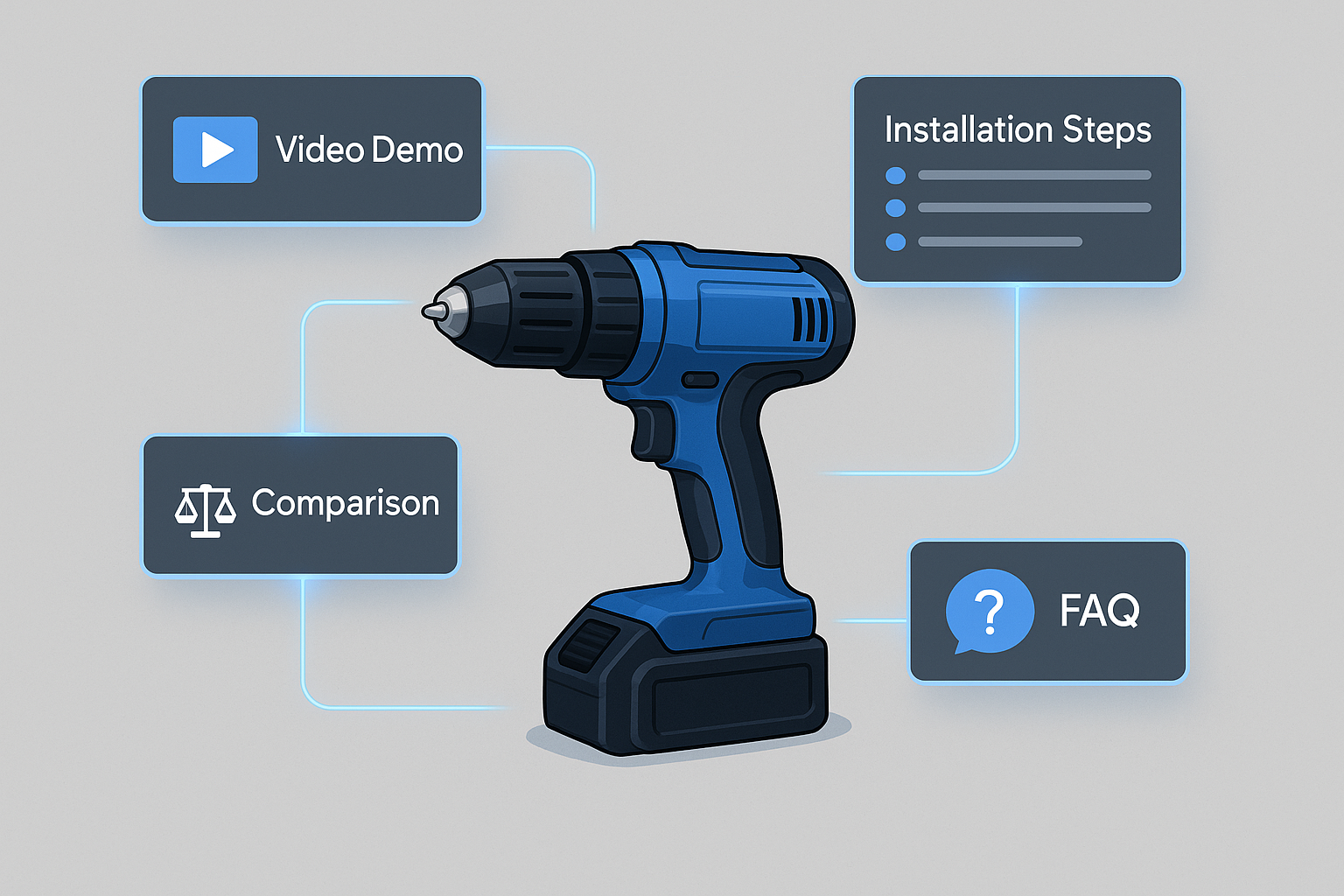Shopping for home improvement isn’t like buying a T-shirt. Customers need guidance: Which drill works for my project? How many tiles do I need for this space? What’s the right paint finish for a kitchen wall? Traditionally, those answers came from in-store associates. Today, conversational AI in eCommerce is stepping into personalizing the digital experience by giving shoppers real-time advice across websites, apps, and even video commerce platforms.
In this article, we’ll explore how leading home improvement retailers are using AI-powered shopping assistants to drive sales, improve customer experience, and build loyalty.
Why Conversational AI Matters for Home Improvement
Unlike simple retail categories, home improvement involves high-intent, high-consideration purchases. Shoppers aren’t just browsing, they need product details, side-by-side comparisons, and real confidence before making a decision. They want to see products in action, evaluate performance, and understand how options stack up against each other. Research from McKinsey shows that companies excelling in personalization generate 40% more revenue from those activities than average players (McKinsey). Conversational AI and shoppable video address this by combining detailed information with interactive demonstrations, helping customers move from research to purchase with certainty.
That’s where conversational AI shines:
- Answering detailed product and project questions instantly
- Providing personalized recommendations (e.g., which saw blade fits a specific tool)
- Guiding DIYers through step-by-step project planning
- Reducing cart abandonment by resolving doubts in real time
Where Conversational AI Entry Points Fit in the Shopper Journey
Conversational AI isn’t just about having a chatbot floating in the corner. The most effective retailers design different FAQ entry points across the website, each tailored to the shopper’s stage:
- Homepage (Discovery): AI-powered FAQs here spark exploration, helping customers learn what’s possible (“What projects can I do with peel-and-stick tile?”). This stage is about inspiration and guiding traffic toward categories.
- Category Pages (Consideration): At this stage, FAQs help narrow choices. Shoppers might ask, “What’s the difference between vinyl and laminate flooring?” or “Which drill is best for concrete?” Conversational AI provides comparisons, context, and links to educational videos.
- Product Detail Pages (Conversion): FAQs shift into confidence-building. They answer specific, purchase-blocking questions like “Will this paint cover in one coat?” or “Does this saw include the blade?” paired with shoppable videos, tutorials, or customer stories.
By placing conversational AI at these strategic entry points, retailers align discovery, consideration, and conversion into a single, personalized experience, reducing bounce, building confidence, and driving purchases.
Real-World Applications in Home Improvement Retail
1. Smarter Product Discovery and Education (The Core Value)
The biggest advantage of conversational AI in home improvement is helping customers figure out exactly what they need and why. Shoppers don’t just want to browse, they want guidance: What kind of tool is right for this project? Which material will last the longest? What’s the difference between two similar options?
AI-powered shopping assistants simplify these high-consideration decisions by:
- Asking clarifying questions to guide customers toward the right product.
- Connecting directly to educational and engaging content like video demos, tutorials, or how-to guides, so customers can see products in action and learn before they buy.
- Offering side-by-side comparisons to build confidence in the final purchase.
This turns the shopping experience into a mix of consultation and education. A digital version of the trusted in-store associate who explains, demonstrates, and advises.
2. Project Calculators and Guided Shopping
Accenture reports that 91% of consumers are more likely to shop with brands that provide relevant offers and recommendations (Accenture). Conversational AI acts like a virtual project consultant. Shoppers can enter dimensions or project details, and the assistant calculates requirements, suggests accessories, and recommends add-ons, from flooring underlayments to the exact number of paint cans.
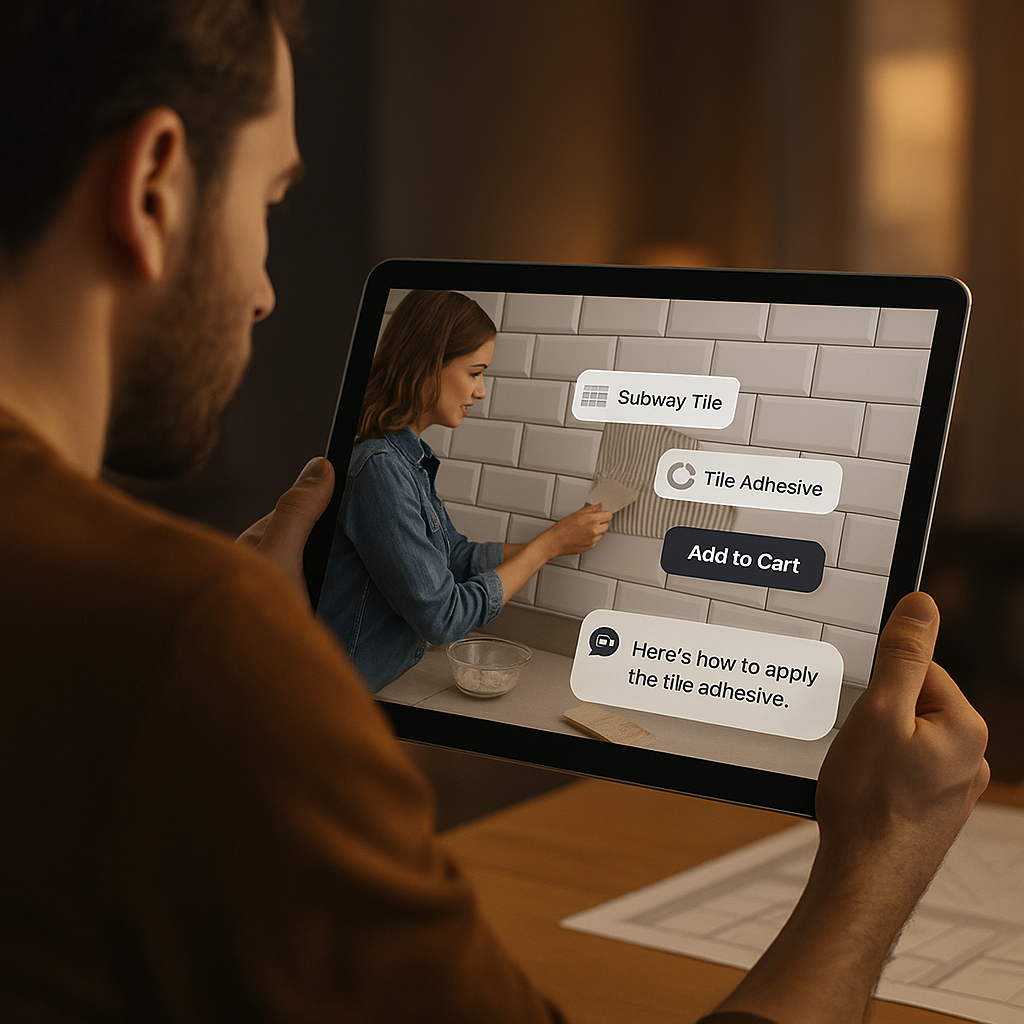
3. 24/7 Customer Support
Many DIYers research after hours. Conversational AI ensures they always get immediate answers on specs, shipping, and availability, keeping carts moving even when stores are closed.
4. Post-Purchase Support
Conversational AI continues to deliver value after checkout, offering installation tips, warranty info, and troubleshooting advice, cutting return rates and improving long-term satisfaction.
Examples from the Industry
- Lowe’s: Launched Mylow, an AI-powered virtual home improvement assistant that answers project-related questions and provides expert guidance in real time.
- Home Depot: Introduced Magic Apron, a suite of generative AI tools that deliver conversational product guidance and DIY support on its website and mobile app.
- Lowe’s In-Store: Extended AI to employees with Mylow Companion, a handheld generative AI tool that helps associates answer customer questions faster on the sales floor.
These examples show how conversational AI is personalizing the digital experience and shifting from novelty to necessity in the home improvement sector.
Business Benefits for Home Improvement Stores
Conversational AI isn’t just about answering questions, it’s about personalizing digital experiences that directly impact the shopping journey. By guiding customers with instant, relevant, and contextual support, home improvement retailers see:
- Higher Conversions: Shoppers who get instant answers are more likely to buy.
- Bigger Basket Sizes: AI can recommend complementary products (paint brushes, drop cloths, rollers with paint purchases).
- Reduced Returns: Clear guidance ensures customers buy the right product the first time.
- Stronger Loyalty: Consistent, accessible support builds trust with DIYers and pros alike.
The Future: Conversational AI + Video Commerce
The next frontier combines AI-powered shopping assistants with video commerce. Imagine a shopper watching a DIY tutorial on installing backsplash tile. As questions arise, an AI assistant answers in real time, suggests tools, and lets the viewer buy directly from the video.
This is where platforms like Firework stand out, blending conversational AI in eCommerce with shoppable video to replicate the expertise of an in-store associate online.
Home improvement shopping is complex, but conversational AI makes it easier, faster, and more personalized. From AI chatbots for retail to AI-powered shopping assistants, home improvement retailers are transforming customer experience and unlocking new revenue opportunities.
Ready to see how conversational AI and video commerce can elevate your retail strategy? Book a Firework demo today and discover how to turn browsers into confident buyers, 24/7.
Unlock Exclusive Insights
By submitting this form, you agree to Firework's privacy policy and consent to receive personalized marketing communications. You can unsubscribe at any time.
